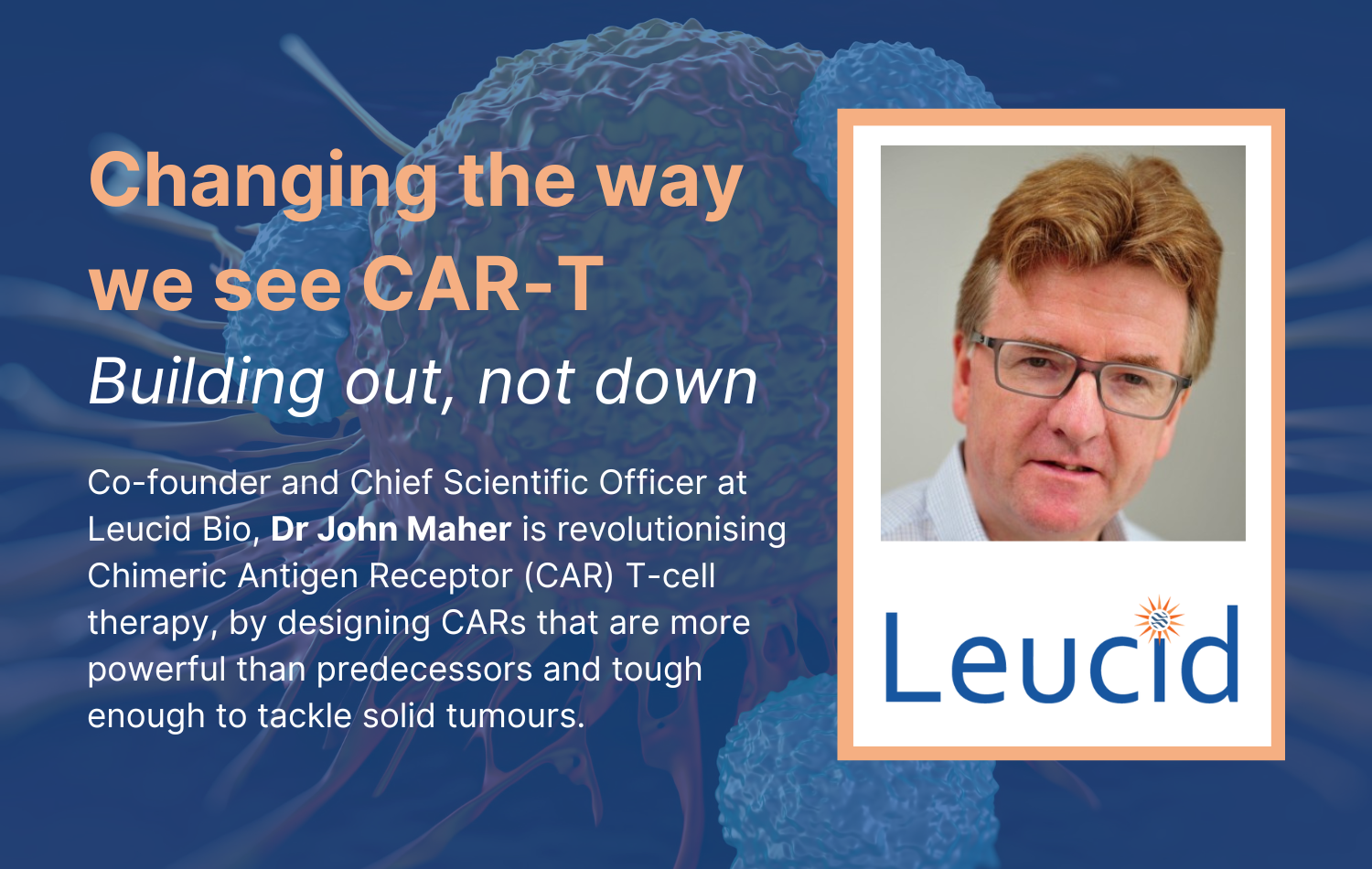Changing the way we see CAR-T – Building out, not down

Co-founder and Chief Scientific Officer at Leucid Bio, Dr John Maher is revolutionising Chimeric Antigen Receptor (CAR) T-cell therapy, by designing CARs that are more powerful than predecessors and tough enough to tackle solid tumours.
Dr Maher began his academic career at Trinity College, Dublin and has held numerous clinical, research and teaching positions at institutions such as King’s College London. He established CAR T-cell research at King’s College London where he is a Consultant and Clinical Senior Lecturer in immunology within the Comprehensive Cancer Centre.
He is noted for his work on CAR T-cells, which are harvested from a patient and genetically modified to fight cancer, and then reintroduced into the body.
“First generation” CAR T-cells proved ineffective in patients while “second generation” CAR T-cells achieved unprecedented efficacy in patients with selected blood cancers. However, solid tumours represent 90% of cancers and are the most common cause of cancer deaths worldwide. In this setting, CAR T-cell therapy currently offers little clinical benefit. It is evident there is a clear unmet need for more effective treatments for these cancers.
Dr Maher embarked on a mission to overcome the drawbacks associated with the previous generation of CAR-T cells, such as Novartis’ Kymriah (tisagenlecleucel), the first in class drug that was FDA-approved in 2017.
In 2014, Leucid was set up to translate over 20 years of research led by Dr John Maher at King’s College London. The company is now pioneering a “next generation” approach to CAR T-cell therapy, based on a different arrangement of receptors than those found on CAR Ts such as Kymriah.
At Leucid, Dr Maher and his team are working on a “Lateral CAR” approach, where receptors deliver more balanced signals to T-cells. This is because the technology allows key signalling units to be positioned laterally in a more natural location and configuration within the cell. The lateral CAR technology confers properties to the CAR-Ts that enable them to consistently outperform previous generations of CAR-T therapies in pre-clinical studies.
The machinery hidden beneath the surface is also different from previous generations of CAR and is designed to enhance survival and allow the modified cells to proliferate once they have been reintroduced into the patient’s body.
Leucid also aims to minimise off-target side-effects such as cytokine release syndrome (CRS) – potentially fatal over-stimulation of the patient’s immune system – and neurotoxicity by tweaking the design of the CAR.
Leucid’s lead asset LEU011 is a lateral CAR targeted against NKG2D ligands. Currently in pre-clinical development for a range of cancer types, Leucid expects to file its CTA to initiate the clinical trial in H1 2023 and to be dosing patients by H2 2023.
Leucid is also looking even further forward and has “off the shelf” CAR T-cell therapies in preclinical development. These can be derived from a bank of donor cells and will be cheaper and more convenient to market than predecessors.
Built on ground-breaking research, backed by leading investors, and with an experienced team in place to drive its next phase of growth, Leucid is well positioned to become a leader in the exciting new era of CAR-T therapies.